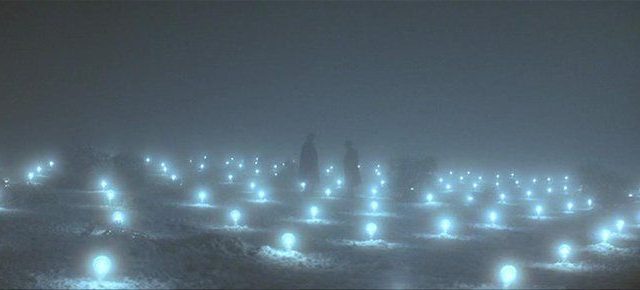“Have you considered the cost?”
“Money is no object.”
“Yes, but have you considered the cost?”
I recently wrote a Patreon essay about Christopher Nolan’s obsession with the Dead Wife/Girlfriend. It’s for subscribers, but I know actual people don’t click on these things often, so I’ll quickly summarize my argument: Nolan doesn’t want to murder his real wife and collaborator Emma Thomas, but is instead obsessed with what will happen to him if he loses her. He’s terrified of the very thought of it, and this fear hangs as a Shadow over many of his films right up to The Dark Knight Rises, which is not coincidentally about the main character getting the fuck over this, even if it takes an absurd amount of time. Interstellar and Tenet are flawed movies, but they were refreshing for dealing with more of a massive planetary loss. These films, as well as his masterpiece, Dunkirk, are instead steeped in apocalypse.
The Prestige is one of Nolan’s best films prior to 2008, and it is, like the much more radical but similarly psychological and symbolic Possession, about doubling, the loss of a loved one, and the loss of self. Angier and Borden are archetypal show business figures, the Showman and the Artist, set against each other. Angier blames Borden for the death of his wife in the middle of a botched trick, but eventually he doesn’t even give a shit about her, or about getting revenge, as much as absolutely beating him into submission. Borden meanwhile shatters his wife forever because of his second life. Both men resort to creating doubles of themselves to pursue their magic (art), sublimating the self in order to live multiple lives.
If Inception is about an artist coming to terms with the cost of their work, and what they still can do, The Prestige has a much more pessimistic view of the trap a creator makes for themselves and for others. The introductory trick always requires a dead bird, after all. No one gets out alive except maybe Tesla and Cutter. But then Cutter doesn’t have such pretensions of grandeur, and Bowie’s intelligent, cultured presence as Tesla indicates how the inventor long ago learned to live with and compartmentalize his multiple selves, even if his outsiderdom means a lifetime of frustration.
On rewatch, the twist at the end is obvious, but still so inherently eerie that it is hard to dismiss it as a mere cheap narrative trick (“Abracadab-”). What’s even scarier about the end is that both Angier and Borden do reach the Sublime, even if they reached it in radically different ways, with different results. Angier goes to the most absurd, fiendish lengths possible to accomplish the trick, where Borden is basically Occam’s Razor in practice. Who is the better artist here? The man who destroys a piece of himself every night for his work, or the man who makes this a part of him every single day, existing as two lives?
There have been arguments that Nolan should make a horror film but this is as close as it gets. The third act especially is permeated by a slow, strange dread, right up until a final shot that reveals a gallery of monstrous deeds we, as an audience, couldn’t even conceive of because “you want to be fooled.”

